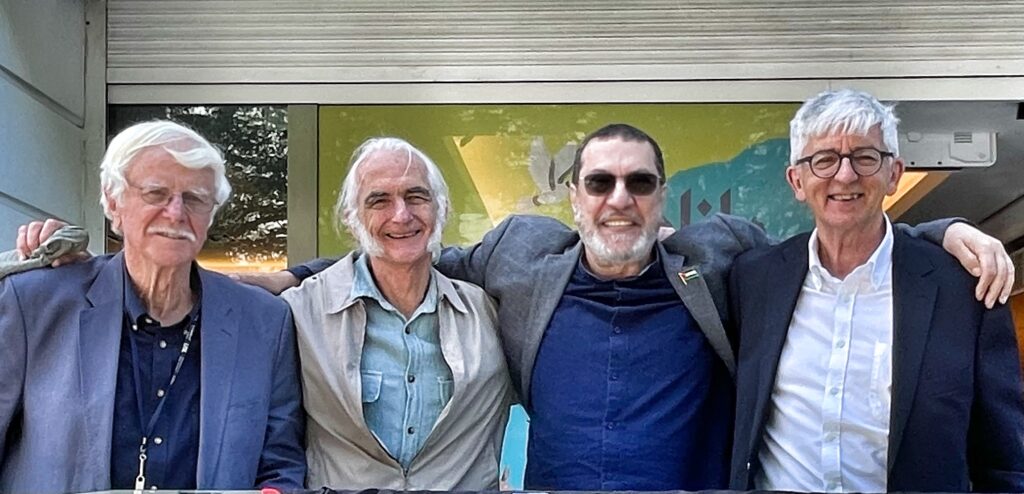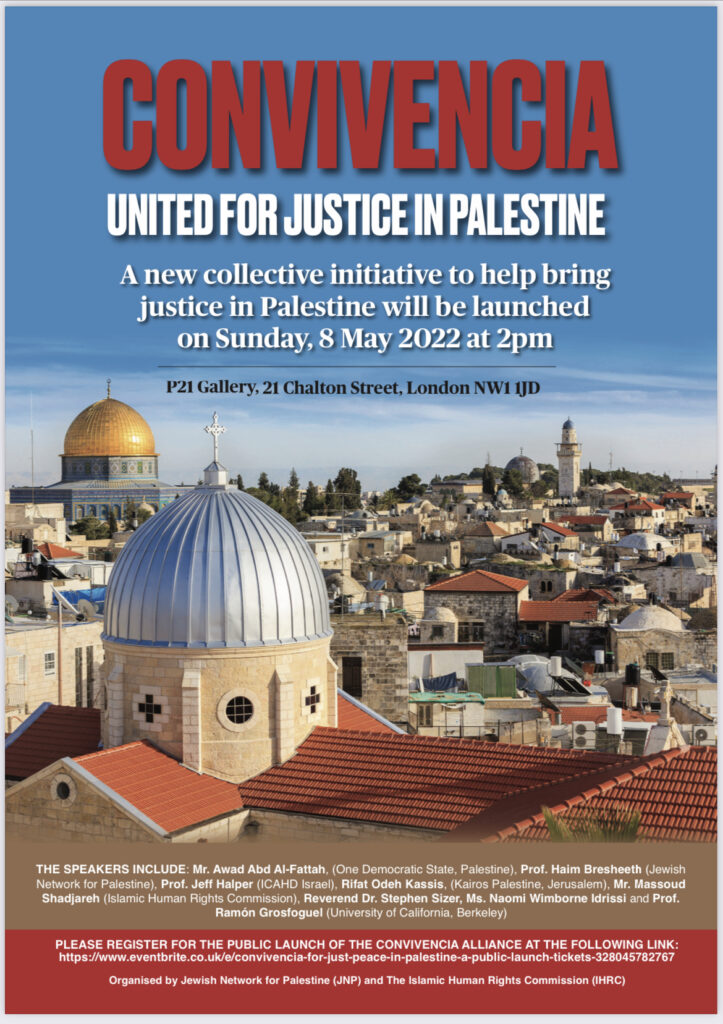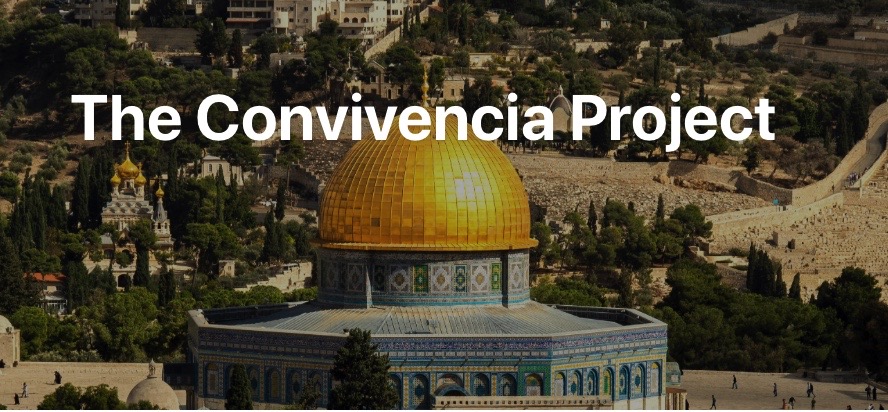
With friends at the launch of the Convivencia Alliance In London last Sunday – from Jewish Network for Palestine (JNP), Jewish Voice for Labour (JVL), Israeli Committee Against House Demolitions (ICAHD), One Democratic State (ODS), Kairos Palestine, Naturei Karta and Islamic Human Rights Commission (IHRC).
This was my presentation at the launch of the Convivencia Alliance:
I have been looking forward to this day for a very long time. I became very excited when I read the first draft of the Convivencia Declaration. My dream has always been of seeing Jews, Muslims and Christians work together to bring justice, peace and reconciliation in Palestine. Why? Because, if with God’s help we can achieve peace in Palestine, we can achieve it anywhere.

That is why it has also been an honour to work with the Islamic Human Rights Commission (IHRC) over many years and more recently to be welcomed as a member of the Jewish Network for Palestine (JNP). It is heartening to see Christian leaders in Palestine enthusiastic to join the Convivencia Alliance as well. I am confident British Christian leaders will join eventually also.
It is painful to acknowledge that many Christians justified slavery in the Americas, apartheid in South Africa and Zionism in Palestine. It is sobering to realise that at least nine out of ten Zionists in the world today are Christians. The continued denial of Palestinian human rights is therefore largely a Christian responsibility.
It is also becoming increasingly obvious, as a result of numerous reports from Human Rights Watch, B’TSelem, Amnesty International and Sabeel Jerusalem, that Zionism is implementing a form of apartheid in Palestine.
But the roots of racism, supremacy and segregation go back much further than the slave era, or apartheid, or even pre-Convivencia Spain. The Hebrew scriptures which are the foundation of Judaism, Christianity and Islam acknowledge that God’s people all too often assumed God’s promises were theirs exclusively, equating chosenness with supremacism.
Repeatedly through the prophets God reminded his people that they were chosen for a purpose – to be a light to the Gentiles not a stumbling block. God intended his people to be inclusive of all nations, and the land his inheritance to all who acknowledge him.
Through the prophet Isaiah, God insists all are welcome:“Let no foreigners who have bound themselves to the LORD say, “The LORD will surely exclude me from his people.” … foreigners who bind themselves to the LORD to minister to him, to love the name of the LORD, and to be his servants … who hold fast to my covenant—these I will bring to my holy mountain… for my house will be called a house of prayer for all nations.”” (Isaiah 56:3-7)
Through The prophet Ezekiel, God insists the land was to be shared,“You are to distribute this land among yourselves according to the tribes of Israel. You are to allot it as an inheritance for yourselves and for the foreigners residing among you and who have children. You are to consider them as native-born Israelites; along with you they are to be allotted an inheritance among the tribes of Israel.” (Ezekiel 47:21-23)
Through the Psalmist, God insists Jerusalem is to shared also.“I will record Rahab and Babylon among those who acknowledge me— Philistia too, and Tyre, along with Cush— and will say, ‘This one was born in Zion.’” Indeed, of Zion it will be said, “This one and that one were born in her, and the Most High himself will establish her.” The LORD will write in the register of the peoples: “This one was born in Zion.” (Psalm 87:4-6)
An inclusive identity and a shared land.
That is why the exclusivity and supremacy inherent in Zionism is anathema to the Hebrew Scriptures. I believe the Convivencia Alliance represents an exciting and contemporary expression of the Jewish prophetic tradition in its commitment to justice, peace and reconciliation.
What does God expect of us? The prophet Micah leaves us in no doubt:“And what does the Lord require of you? To act justly and to love mercy and to walk humbly with your God.” (Micah 6:8).”

